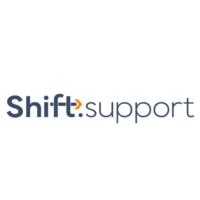Season 1, Episode 2 of the Better Tomorrows Podcast: NOW LIVE.
Quentin Gardiner (CEO of the HGA Group) sits down with local entrepreneurs and business owners every month to talk shop, tackle challenges, and share insights you won’t find in a textbook.
Take a listen to The Better Tomorrows Podcast for a no-fluff look at what it really takes to run a business in Alberta. Whether you’re in the game or just love a good success story, tune in for real conversations that fuel better tomorrows.
In this episode…
Quentin Gardiner sits down with Shane Unruh, President and CEO of XS Asset Management, to talk about turning naive passion into real business success. From opening a gym with zero experience to navigating disastrous real estate deals in Edmonton, Shane shares the brutal truth about what it takes to build wealth.
They dive into mobile home parks, government subsidies that vanish overnight, and why one $5,000 conference completely rewired how Shane thinks about leverage. It’s a raw conversation about learning expensive lessons and coming out stronger on the other side.
Transcript
Quentin 0:17
Shane, wanted to thank you today for coming in to be a guest on the Better Tomorrow’s Podcast. Weather is not great today, so appreciate that you made it pretty much on time, and thank you for taking the time to join us today. As an introduction, Shane Unruh is the President, CEO of XS Asset Management. We’ll talk a little bit about what XS does, and hopefully get into your journey today and how it came to be that you’re the president, CEO of a growing, exciting organization. So thanks for coming.
Shane 0:48
Well, thanks for having me excited to be here.
Quentin 0:51
So I always like to get the backstory of people who are in successful positions. I think just it’s a good color for people to understand that you didn’t wake up one day and and find yourself in this role, and certainly in your case, I know a little bit about your backstory, but I’d love to, for the listeners, let them know sorta how does he come to be, you know, an entrepreneur and in the role you’re in?
Shane 1:09
Yep, so I yeah, I’ll condense it down. It’s a longer journey, but I’ll get it short and you dig into whatever you want. So born and raised northern Manitoba, so it was a very small community. It was a place where, you know, success and that kind of stuff wasn’t talked about, right? There just wasn’t any of that. I was specifically raised in a menonite community, so there was even less of that. It definitely wasn’t, wasn’t that. So we farmed kind of our whole life. Got into business in my early 20s. I started, opened and ran a gym for five years, and then I got into real estate by buying a mobile home park. So it’s kind of my first step into real estate. And then we transitioned out of that. Moved to Alberta in 2020 and started what we have today, which is, we do multi family, we run a real estate fund.
Quentin 1:55
So just clicking back on that. So your first experience was, you open to open a gym in northern Manitoba. Tell us a little bit about that. Well, must have been quite an interesting experience.
Shane 2:03
Yea, yeah. And, like, in hindsight, probably very naive. And I, you know, I probably would never take that risk today, but I would, because we farmed in the summer and in winter, I actually always came out to Alberta worked in construction stuff, and I would come to the gyms out here, and we had nothing like that back home. So I just, I was like, man, everybody would love this, right? That would be a great idea. So, yeah, we bought the land. We had money from the farm that we could use. So we bought the land, built the gym, and it was, you know, it was a lot of work. We spent seven hours a day, or seven days a week, you know, all day, every day there. But it was, we made it work. And it was a very small community. Afterwards, pretty much everybody came and was like, Hey, we never thought this would work here, you know, but it was something we’re passionate about and willing to put the time in. And it ended up, yeah, it worked really well, and still going today, someone else runs it but –
Quentin 2:53
So what made you decide to stop being a gym owner and move into sort of more the real estate side?
Shane 2:58
So for me, I love scale, like I like growing, and whether that’s personally or in business, I just that’s what makes me excited. I’m the happiest when I’m growing and building. And we got that gym, like, the town just wasn’t that big. So once we hit a certain number of members, I’m like, you know, there’s zero chance we double this, right? And the model worked because we worked 10 hours a day seven days. So it worked because we were there, not paying someone to run it. The model didn’t work opening a second one in my mind, I was like, I can’t do this in small communities, in big in cities, it doesn’t, I don’t like the gym model, or I didn’t, didn’t think that big maybe. So I was looking for something else, because we just kind of capped out. And I read an article in Forbes that was called mobile home park millionaires. And I was like, This is great. Like, it seems like it seems like such a good idea. You just buy the land, you don’t own the buildings. And I read that, and it was fate or luck or whatever, but the one park that was in our town went up for sale, and I looked at that, and it was, it was a million dollars. I just remember, for me, that was an endless amount of so much money. And I was like, there’s just no way it can be worth this. It’s a piece of land in a small town, and I got the numbers and and it just made total sense. I’m like, Man, I could, you know, in my mind, I thought, I will not do any work, and I’ll make more money on this than I will doing this. So I was like, This is great. This is scalable. And we were able to get really creative with the financing to buy it with the owner, current owner, like he did a VTB, and we were able to get it, and then found out very quickly, it was not passive at all, and we spent equally as much time there. And it’s all the things you don’t think about, kicking the drug dealers out, you know, all the stuff that was goes on in a trailer park. So it was a ton of work. Me and my wife, you know, spent a lot of time there. Her water broke, checking water meters at the park, and we’re there two days later, renovating units up it, but it worked out really good. And that’s kind of how I fell in love with real estate was there.
Quentin 4:49
Right and so your first, your first building acquisition after the park was here in Edmonton.
Shane 4:56
Yes, it was. So we hadn’t moved at that point. We were still there. And my plan. And I had about a five year plan to move to Edmonton. My wife was from here, and we it was, it’s a bigger set to me. This was, like, huge compared to where I’m from, a couple 1000 people. So, so yeah, we looked, and again, we got we had a friend of mine that wanted to invest. So me and him bought a eight unit and and literally, the worst thing, the worst investment we could ever made, but it seemed great at the time, and that was kind of our first step into it.
Quentin 5:25
So when you say worst investment, you know, it sounded like a good idea, but it wasn’t?
Shane 5:29
Exactly, yeah, so I think that’s, that’s just you don’t know what you don’t know. So we, you know, I on paper, everything worked good. We were able to even get a VTB on this one, you know, good financing, and it had a loan rental program in there, subsidized from the government. So it was, all of the rents were above market, and they paid all the vacancy. So it’s like, it’s pretty much the perfect deal you could get. We buy that building. Change of government. They cut the program, but they’re like, everyone’s grandfather so I’m like, this is this is great still, you know, we’re above market, and then four of the tenants died within like, a short amount of time. And then we had it just everything. The boiler went. We had a tenant call because, like, she had wrecked something in her unit. She didn’t tell us, and she called AHS, so they come inspect the whole building. It’s like the railings are a quarter inch too big, so you replace that, then you have to redo the flooring. And it just went on and on and on. So, yeah, I always caution people when you you know, the first one, you got to make sure there’s a reserve fund, or, like, you know, we had our other businesses we could kind of lean on if we needed to. So we, you know, we pump money into that more than –
Quentin 6:34
So looking back with hindsight, would there have been signs that maybe it wasn’t a good acquisition? Knowing what you know now?
Shane 6:39
Probably, yeah, probably. But, I mean, I always, I’m kind of like, grateful that happened. Had it been just a home run, I would have been like, man, A) smartest guy in the world, right? Best investor. And, like, you would have just went, you know, fully in on, hey, this is, this is what works, and this way it, yeah, I kind of taught you some lessons, and there would have been some stuff, but there’s, you can read every book and do everything what you don’t until you get in it and do it. There’s just, you know, you’re never going to know every single thing. So it just, I think you need to starting out, you know, somewhat have that reserve, or be somewhat cautious, if that can happen.
Quentin 7:16
So just reflecting back on how you know, I think you’re, I know we have a personal relationship. So I know that personal development certainly on your radar screen, but sort of thinking back to the younger version of yourself, where you were, you know, maybe full of energy and enthusiasm, but maybe not the knowledge. What are a few things that you might want to be able to go back and tell yourself back when you first started? Maybe, maybe you’ll start at the time where you first acquired the 8-plex. What advice would you give yourself now to to that version of Shane back then?
Shane 7:46
Yeah. Well, I think, like everybody, I wish I started younger, sooner, you know, but I think it just just getting around the right people and getting that knowledge, like I heard, just just yesterday, a guy talked about, you know, business is like a marathon, in the fact that everybody watches the start and the end, but that really is almost nothing to do with the business, right? It’s that middle part. Nothing to do with running a marathon is at the start or the end. It’s what you do in the middle. And I think getting around people who can explain that to you, like, yeah, it’s anybody can go buy a building, right? Like, it’s not hard to just put together a little bit of money. You can leverage it high right now. You can do it and, and, you know, probably anyone at scale connects at that, but it’s, how do you, how do you properly scale a business, and how do you, you know, how do you run it? And it’s the hiring and all the different levels of things. So I think that getting around the right people, and I was fortunate when I, when I moved here, I just, you know, I would just ask people more like, there was a guy that he probably has about a billion dollars in the city here of real estate, and he took a meeting with me, you know, and you can learn a lot from that. And the conferences, the education, the business groups, things like that. Like, there’s, that’s the best return on money, like, for me, you know, I remember the first thing I ever bought like that is, it was, I think, $5,000 and I didn’t have it. I was like, Man, I can’t spend this. And I and it was a two day thing, and I took one sentence away, the one thing made me understand real estate investing differently than I was looking at it. And, you know, that’s made us millions like that. You know that. So what’s the return on that? Right? Because that 5000 I could have used that too.
Quentin 9:21
So you just said, I got one sentence. Can you share what that sentence is?
Shane 1 9:26
It won’t be as applicable now, because everybody does this. When I started in real estate, people didn’t use leverage the same as they do now. And I was watching the funds in the States, every single guy was taking interest only money. They were taking interest only money for four years. And I just couldn’t get my head around it, because everyone told you, you got to pay the mortgage down, you got to build equity, you got to do it. And he explained why they did that. And he said, the way they look at it is you’re pre, you put more money down, you take interest only money on there. And his idea is that you’re you’re prepaying the equity anyway. And. You’re over time. So every time, if you’re paying principal and interest, essentially with real estate, most guys model isn’t to pay the building off, it’s to refinance the money out. So he’s like, why wouldn’t you rather have more cash flow today? Let the money the bank. Let the bank use their money. You have a big spread. At that time, we were getting money at 2% and inflation was five, let’s say or four or whatever. So he’s like, you’re paying the bank back with dollars that are worth less. So as long as you can use the bank’s money today, buy an asset today that’s going to go up in value with inflation, and pay the bank back with $1 that’s deflating. You know, he’s like, play that out over 10 years, and you look at, you know, in 10 years, you’re paying them back, even at 2% inflation, with a 20% less dollar, and your assets went the other way, and there’s a big spread there. So I kind of understood, I got that, you know, grasp that, and then I started running proformas that way. So you could take a higher leverage loan and a low leverage and pretty much the only difference is cash flow. So I’m like, why wouldn’t we buy that building have more cash flow? Because then it’s safer. You can have higher vacancy. You still have the cash flow to go I can pay my investors out more today, and they can use the money today, at today’s today’s dollar, not an inflated dollar down the road. And and you just, you’re kind of doing the same thing the government does. You can use debt, and then inflation eats a lot of that away. So when you pay them back. And so that I kind of got that concept and and it changed. So when I first moved here at the time, you could only get 15% down with this high level and, like, the brokers, like, man, don’t do like, you should do 25% and I’d always argue this and like, look, you know, and then the market just massively shifted. And now, I don’t, you know, you wouldn’t find probably 90% of the properties go at 5% lever, you know, 5% down, like everybody does high leverage. And, but at the time, it wasn’t that so we were able to pick up stuff, not put as much equity down.
Quentin 11:51
Yeah, I’m excited to watch XS grow, and I’ve, I’ve got to witness part of your leadership growth and and what you’ve built there at XS, and it’s, it’s something to be proud of. And yeah, so, and I think given a few good tidbits for young people with some ambition to to follow. And so, want to thank you for taking the time today to come be a guest on the better tomorrow’s podcast, and wish you in XS, nothing but the best.
Shane 12:15
Well, thanks a lot. Thanks for having me on.
















